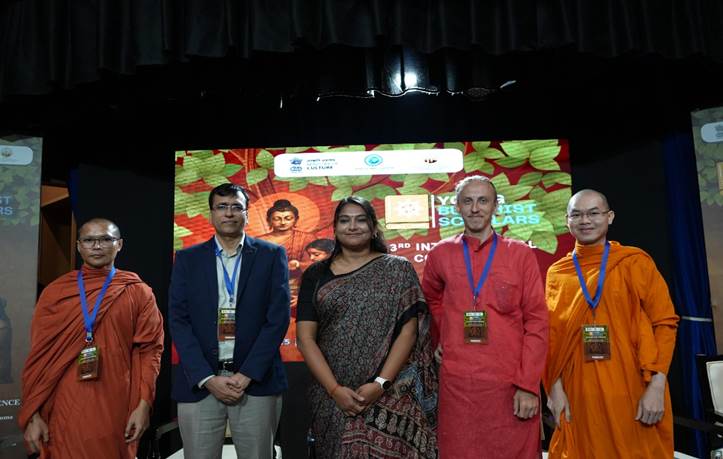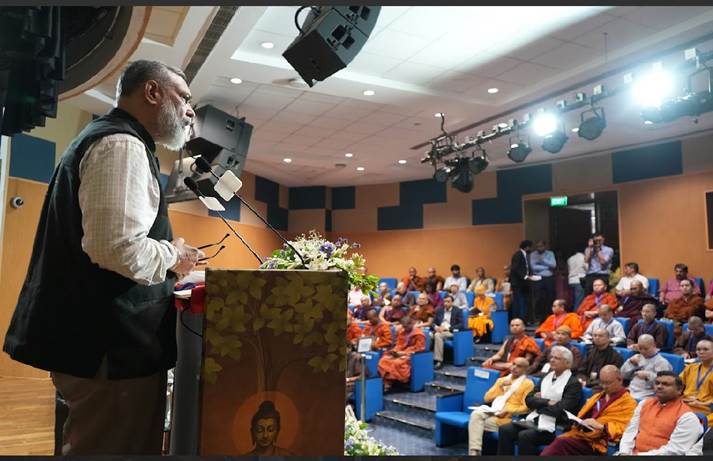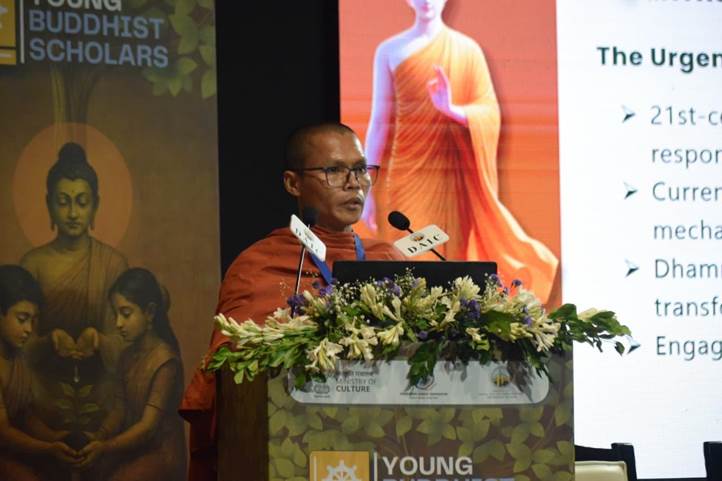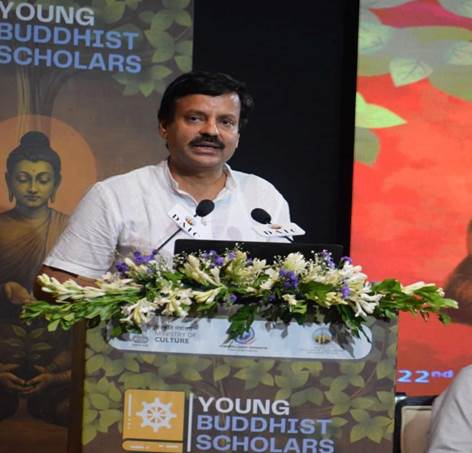Young Buddhist Scholars Unite at 3rd ICYBS Conference to Explore “Wisdom Transmission in Buddha Dhamma in the 21st Century”
Young Buddhist Scholars Unite at 3rd ICYBS Conference to Explore “Wisdom Transmission in Buddha Dhamma in the 21st Century”
The International Buddhist Confederation (IBC), under the aegis of the Ministry of Culture, Government of India, in collaboration with the Dr. Ambedkar International Centre (DAIC), successfully hosted the 3rd International Conference of Young Buddhist Scholars (ICYBS) at the Nalanda Auditorium, DAIC, New Delhi. The theme for this year’s conference was “Wisdom Transmission in Buddha Dhamma in the 21st Century.”

The annual conference brought together young scholars, professors, monks, and dignitaries from countries including Russia, Vietnam, Cambodia, Sri Lanka, Myanmar, Taiwan, and India. Discussions explored how the Buddha Dhamma—rooted in compassion, mindfulness, and ethical conduct—can be meaningfully transmitted in the modern age through digital innovation, intercultural dialogue, education, and personal practice.

The conference opened with mangalacharan (invocation) followed by a welcome address from Shartse Khensur Jangchup Choeden Rinpoche, Secretary General of IBC, who emphasized IBC’s commitment to nurturing young minds and sustaining the sacred continuity of wisdom (Citta Santati).

Special presenter Yeshi Dawa, Senior Researcher, 108 Peace Institute, highlighted the role of compassion in addressing mental health challenges faced by youth. A documentary film on the “Holy Relic Exposition in Vietnam,” which drew 17.8 million devotees earlier this year, was also screened.

In his address, Shri Abhijit Halder, Director General, IBC, underlined five essential components for youth—mindfulness, impermanence, compassion, self-realisation, and environmental responsibility. Keynote speaker Prof. K. T. S. Sarao commended IBC’s use of the term Buddha Dhamma over “Buddhism” and reflected on its role in ethical global governance.
Shri Rana Pratap Singh, Vice-Chancellor of Gautam Buddha University, the Chief Guest, stressed the integration of Buddha Dhamma into education, including science curricula, to promote happiness, leadership, and sustainable living.
Across four thematic panels, participants discussed Emperor Ashoka’s governance model, traditional knowledge transmission through the Guru-Shishya relationship, the role of Buddha Dhamma in shaping ethical AI, and the engagement of youth through education and Sangha-led initiatives.
The conference concluded with a Vote of Thanks by Prof. Ravindra Panth, Head of Academics Division at IBC, who reiterated the importance of preserving the uninterrupted flow of consciousness (Citta Santati) through study, practice, and collective commitment.
The 3rd ICYBS reaffirmed that the wisdom of the Buddha Dhamma continues to hold deep relevance in addressing global challenges, shaping ethical futures, and guiding humanity on the path of compassion, mindfulness, and sustainable living.
****